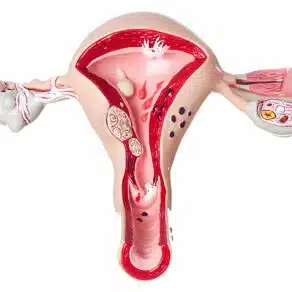Introduction: Endometriosis iud, a condition where tissue similar to the uterine lining grows outside the uterus, affects millions of women worldwide. For women seeking contraception, intrauterine devices (IUDs) are a popular choice. However, questions arise about the impact of IUDs on endometriosis. In this article, we delve into the relationship between endometriosis and IUDs, exploring their effects, benefits, and considerations.
1. Understanding Endometriosis:
- Definition: Endometriosis involves the growth of endometrial-like tissue outside the uterus, leading to inflammation, pain, and sometimes infertility.
- Symptoms: Chronic pelvic pain, painful periods, and infertility are common symptoms of endometriosis.
- Treatment: Management may include pain relief medications, hormonal therapy, or surgery to remove endometrial implants.
2. Intrauterine Devices (IUDs):
- Types: Hormonal and non-hormonal (copper) IUDs are available, each offering unique benefits and considerations.
- Mechanism: IUDs prevent pregnancy by altering the uterine environment, inhibiting sperm mobility, and affecting the uterine lining.
3. Impact of IUDs on Endometriosis iud:
- Hormonal IUDs: Some studies suggest that hormonal IUDs may help alleviate symptoms of endometriosis by reducing menstrual bleeding and suppressing endometrial growth.
- Non-hormonal (Copper) IUDs: While copper IUDs do not contain hormones, their contraceptive effect may reduce menstrual flow, potentially providing symptomatic relief for women with endometriosis.
4. Considerations and Benefits:
- Menstrual Management: Additionally, both hormonal and non-hormonal IUDs can help manage heavy menstrual bleeding associated with endometriosis. Consequently, this improvement enhances the quality of life for affected individuals.
- Contraceptive Efficacy: IUDs offer highly effective, long-term contraception, providing peace of mind for women with endometriosis who wish to avoid pregnancy.
- Fertility Preservation: In contrast to some hormonal contraceptives, IUDs do not impact fertility. Therefore, they are suitable for women with endometriosis who intend to conceive in the future.
5. Individual Considerations and Consultation:
- Personalized Approach: The choice of contraceptive method, including IUDs, should be tailored to each woman’s individual needs, preferences, and medical history.
- Healthcare Provider Guidance: Women with endometriosis should discuss IUD benefits and risks with their providers, considering symptom severity, fertility desires, and treatment outcomes.
Conclusion: Despite the complex relationship between endometriosis and IUDs, these devices offer benefits beyond contraception for managing symptoms. Consulting healthcare providers and exploring all options empowers women to make informed decisions for their reproductive health and well-being.




